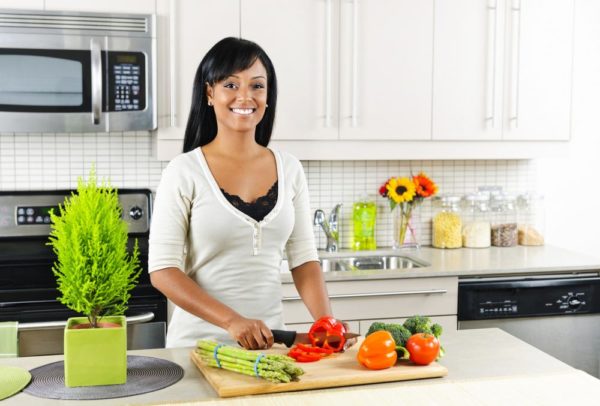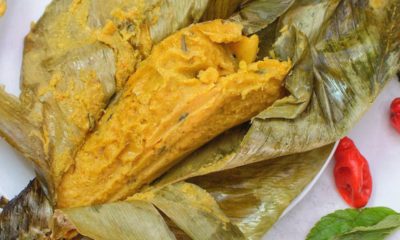Features
Mrs Kush: 10 Basic Food Hygiene Principles
 I recently completed a refresher course on food hygiene and handling. I thought to share 10 key areas that I feel would be useful for the average cook.
I recently completed a refresher course on food hygiene and handling. I thought to share 10 key areas that I feel would be useful for the average cook.
Disclaimer: this is not an exhaustive list. My training workbook was 48 pages. Since I know copying and pasting is plagiarism and you probably won’t be patient to read it anyway, I’m summarising my top 10 food hygiene best practices to give you better knowledge when next you handle food.
Wash your hands
Sounds basic, but you’d be surprised how tedious this can be if you’re handling lots of food items or doing a lot of prepping. For most people (Chefs & home cooks) hand washing is not the issue. The main problem is washing them often enough. You need to wash your hands with soap and water before you start handling any food item. You also need to wash your hands when you are switching between different types of food. E.g. After you’ve handled raw meat, you need to wash your hands thoroughly before touching something else like fruits and vegetables. If you touch your face, wash you hands. It goes without saying that if you go to the loo, wash your hands. If you stop midway to take a picture for the gram, please for goodness’ sake wash your hands! Think about it: some of you people take your phones to the toilet for company, the bacteria on it will be to die for, literarily!
Clean & disinfect your kitchen/work area thoroughly
It is not sufficient to sweep and mop, you need to disinfect work surfaces, prepping stations, storage areas and equipment. Vinegar is a good food safe disinfectant. It is however, not sufficient to kill more harmful bacteria like Staphylococcus or E.coli. If you feel the need to do more thorough disinfecting, you might want to get something stronger. It’s also a good idea to wash raw fruit and veggies (for salad) in a vinegar solution for extra protection.
Guard against cross contamination
Sometimes food poisoning happens even before you’ve touched the ingredients. If you buy raw meat from the market and put it in the same bag as Cucumbers and Carrots, chances are that harmful bacteria from your meat with infect your veggies. If you go on to use the veggies in a salad you are exposing people to harmful bacteria, especially if you do not wash thoroughly and disinfect. Same thing applies when you store food. As a rule, always store raw meat at the lowest part of your fridge or freezer to prevent dripping onto cooked food. Also avoid storing meat (or any kind of food for that matter) for too long in your freezer in you don’t have constant electricity.
Be aware of hazardous ingredients
Did you know that eggs, raw meat, seafood, poultry, dairy and cooked grains are considered hazardous? Don’t worry eating rice and chicken with a glass of milk won’t kill you, but it could make you seriously ill if it isn’t stored at the correct temperature. These food items support rapid bacteria growth between 4 – 60°C. If you have a commercial kitchen it is important to have equipment that measure/regulate food temperature. Cold food such as salads should be stored below 4°C and hot meals stored above 40°C. A standard fridge will keep food below the required temp. Chaffing dishes with a Baine Marie and WORKING BURNER are good for hot meals. I typed working burner in caps because I cannot count the number of times I’ve been to a party and seen the food vendors dishing out food from chaffing dishes that didn’t have a burner underneath. Thank God for our “black man blood” we would have died of food poisoning tey tey. If in doubt, serve food as soon as you can after cooking to minimize the risks.
Take a Day off
If you are feeling ill, legally speaking you should not be working especially if you handle food. It is not just disgusting to sneeze on a client’s sandwich, you could actually kill them! Think about it, some of us are rugged and have built immunity to certain bacteria over the years. However, some people may not have been exposed to the kind of bacteria you will accidentally spray on their meal when you cough or sneeze. This could cause them to fall seriously sick. While you’d be fine in a day or two, they may go into a coma and die! I kid, I kid; that’s extreme but it is not impossible. Especially if your client is a small child or someone with an already weakened immune system.
If you make food commercially, please take responsibility for the safety of your clients and do a proper course on food hygiene. You don’t have to go to any fancy institute, I did my refresher course online for £20 (approx. N10,000).
It is better to hold yourself to high standards even if NAFDAC is not on your neck.
Let’s imbibe the culture of excellence in all we do. Even if you don’t care about excellence, at least you can be rest assured that the chances of you poisoning someone and being sued for it is very slim. That’s a huge incentive if you ask me.
Love Mrs Kush.
Photo Credit: © Elena Elisseeva | Dreamstime






















